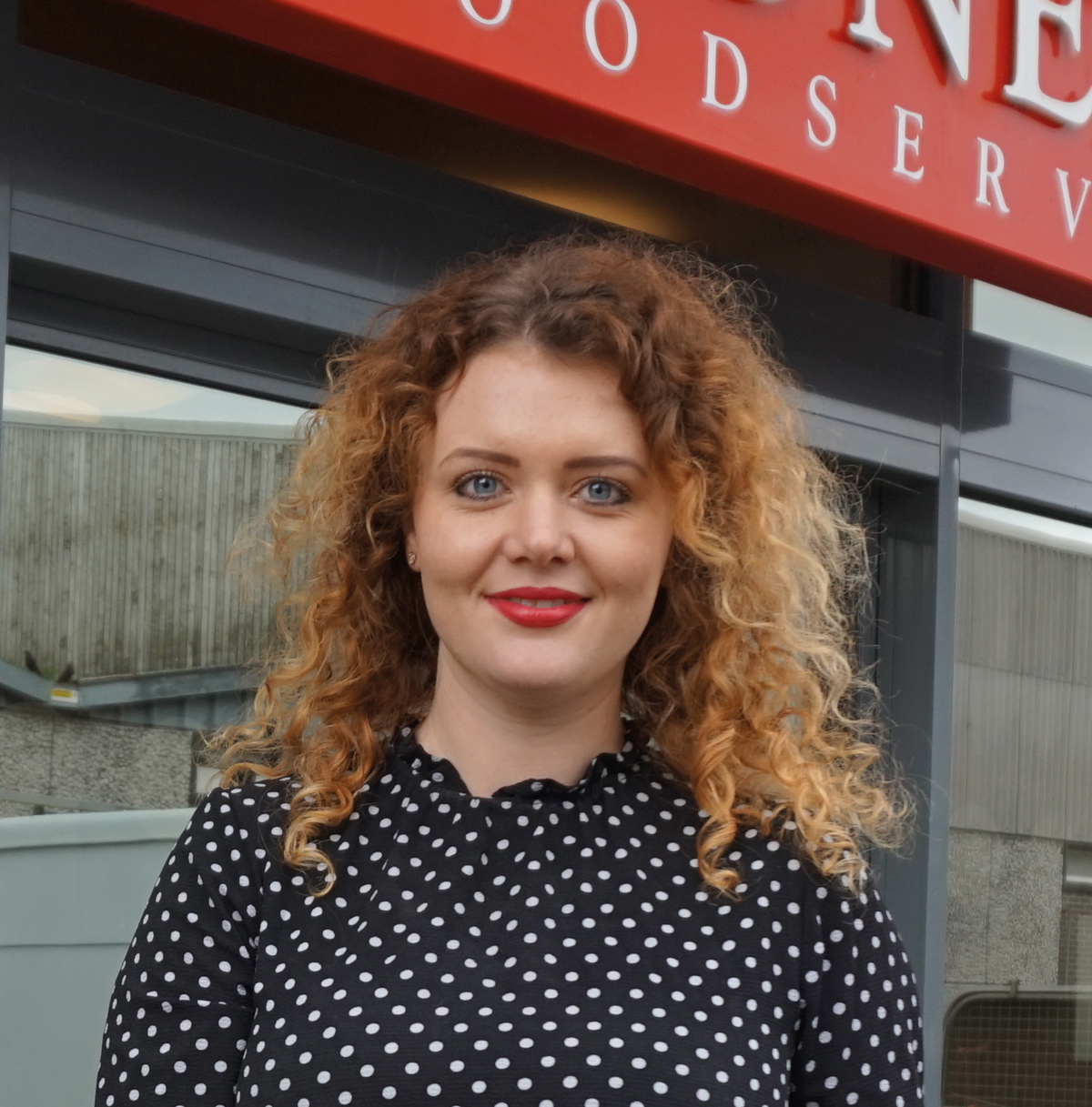Wholesale recruitment: does the wholesale industry have a problem recruiting the very best of the next generation? Paul Hill looks at the image it portrays to the outside world and what can be done to improve it
Wholesale has never properly been on the radar as a destination career for school or college leavers, with few knowing much about what is effectively a hidden world.
The sector needs digital innovators, skilled negotiators, entrepreneurs and people who can build and sustain relationships with customers, which are all aspects that chime with the principles and priorities of the emerging workforce.
But how does it go about doing so? Joe Moulton, marketing coordinator at Birchall Foodservice, believes a shift has already begun in which wholesalers are portrayed not as “box movers”, but “specialists in their areas that can offer great training and advice”.
“Wholesale is not seen in the same light as retail – realistically, it has gone under the radar for a particularly long time,” adds Brakes marketing manager Lorna Allison.
- Read more: How to keep your best staff
“People underestimate the power of the wholesale beast and the career longevity it can bring.
“On top of that, students and young apprentices no longer want a job for life – they want to be constantly stimulated. Doing the same job will only bore a new young recruit, and hence within marketing and buying we do a three-year-long job opportunity in collaboration with Scotland Food & Drink to allow graduates the flavour of marketing, buying and sales,” she says.
Retain and develop
In addition to improving its marketing to attract newcomers, Yulia Goodwin, head of trading and marketing at Sugro, believes the wholesale industry needs to focus on retaining and developing existing talent. “It is equally important to focus on two things – bringing in young people with a fresh outlook who have the right set of digital skills, and continuing with training, mentoring and developing the existing staff so wholesalers can benefit from their wealth of experience,” she says.
Variation is wholesale’s main selling point, adds Debbie Harrison, joint managing director at Pricecheck. “I believe we, as an industry, must work harder to educate others and promote the variety of careers available in wholesale,” she says. The real advantage to working in wholesale? The breadth and variety.
“We may not be one of the glamorous, big-name brands in confectionery, health and beauty, or household, but why settle for one of these when you could work across them all?”
TWC director Tanya Pepin echoes these thoughts, calling wholesale a “dark art”. “The challenge is that the wholesaler operators are less well known than retail or consumer brands, and there is a lack of knowledge around what wholesale actually does,” she says.
“People love a brand and feel more comfortable talking about something they know and understand.”
Yet, while working for a well-known brand is many people’s aspiration, Pepin claims that most people are ultimately more bothered about job satisfaction and being valued for their ability to make a difference. “Whether you are a wholesaler or Google, workplace culture is what retains and motivates people,” she says.
Gary Mullineux, interim managing director at Caterforce, says: “I don’t think wholesale has an image problem, but I would say that the wholesale and foodservice industry is relatively unknown to those outside of it.
“As the work we do is B2B and behind the scenes, it’s often not given the recognition it deserves.”
- Read more: Be a magnet for talent
Meanwhile, a roundtable discussion between six employees under the age of 30 at Savona Foodservice concluded that the image of wholesale is non-existent. The group also agreed that when they were applying for jobs, the job title and role on offer carried more importance than the company.
“They said that some job titles within the industry are old fashioned and do not gain respect from associates, whereas fun job titles are more enticing as it says a lot about the company,” says Savona group sales and marketing director Kelly Williams.
“Passionate individuals like the thought of being able to influence companies with their knowledge and expertise. Renowned brands are attractive for obvious reasons, but young people are more likely to be able to offer ideas and bring positive change to smaller companies who are open to ideas and willing to listen in order to embrace change and progress the business as well as its team,” she adds.
Flexibility
Ceri Wilmott, Bidfood’s director of HR, people and sustainability, is of the same opinion, but claims that wholesale doesn’t exactly have an image problem – it lacks an image altogether.
“Work needs to be done to raise the visibility of careers available in wholesale, and to not be afraid to target particular demographics that could be most susceptible to the assumptions about the industry. There also needs to be a focus on flexibility in the workplace – particularly looking to the long term – as the younger generations have an expectation of flexible working.”
Bidfood is looking to rectify this by providing apprenticeship opportunities in line with the apprenticeship levy. “To date, we’ve predominantly spent the levy internally to support staff progression. Our focus will be on widening our approach as we look to attract external talent into our business through apprenticeships. The team is researching options for creating specific roles that reflect the need to learn as you go, and are anticipating the best time and place to market this,” adds Wilmott.
Meanwhile, this summer, the Federation of Wholesale Distributors (FWD) helped facilitate a pilot scheme for students to spend a week’s work experience with an FWD member. “The intention is that, next year, this will involve wholesalers going into schools to talk about the industry,” explains chief executive James Bielby.
- Read more: How are you fostering star quality staff?
“FWD also match-funds training for those already working in wholesale for any programme that helps colleagues develop their skills.
“There is up to £12,500 available for each wholesaler each year, and we have funded everything from day-long training sessions to post-graduate qualifications.”
Based in Sheffield, Pricecheck has links with local universities, and recently welcomed 11 new starters from a graduate scheme. “We’ve also taken on a record 10 placement students who are joining us for 12 to 15 months to support their degrees,” says Harrison, who is also an entrepreneur in residence at the Sheffield Business School.
“We’re encouraged by the fact that, of our 13 international account managers, 11 joined us through our graduate scheme. Four of our buyers, including two senior buyers, joined from university and our entire IT team started on a graduate or placement scheme. Our finance team also has its fair share of graduates.”
The future of wholesale recruitment
Bestway Wholesale is also looking into a talent programme for future managers in operations to help people reach team leader positions in 18 months. “These are offered to internal colleagues first, as we realise we already have great talent and committed people within the business,” explains head of marketing and digital Salih Sheikh.
“This is, if anything, one of the most exciting times to work in wholesale, as the industry is having to rapidly innovate and even reinvent itself.
“On a macro level, B2B is becoming B2B2C with the wholesale and retail worlds having already started to merge.”
“The answer isn’t as simple as trying to make wholesale ‘sexy’,” adds Bielby. “It’s important for wholesalers to understand how far the pendulum has swung towards potential employees in a jobs market, where so many industries and companies are competing for the best available talent.”
The channel now needs to show clear paths to advancement, including investment in skills development and to demonstrate that it will commit to the young people who are willing to commit to them.

“Being a fundamental part of the supply chain, I think we’re privileged to see the effect our work has had. Knowing that a product in a shop has come from a deal you secured is priceless, and is certainly something that is unique to our sector.”

“Once people have an understanding of what we do as an industry, they will recognise that wholesale is diverse and interesting. Getting to work across all areas of foodservice, as well as some of the high street’s biggest food chains, is what makes it dynamic.”

“It would be great to see increased graduate programmes, placements and apprenticeships to create the ‘future of wholesale’ and better education in the number of roles and opportunities within wholesale companies to show it as a long-term option.”

“As a 22-year-old fresh into the wholesale industry, I have quickly realised that this is a dynamic channel. But young individuals, particularly young women, can bring new, innovative ideas that have the potential to impact the future growth positively.”

“With ever-changing food trends, we need to keep on our toes and be very aware of political, technological and seasonal influences on our trade. Perhaps this is why roles within the wholesale sector tend to attract employees with more experience.”

“I thoroughly enjoy the fast pace of the trading floor and working with numerous different departments, and feel that I have been given opportunities to take on more responsibility early in my career. The best parts involve building up relationships.”

“I have been working in the wholesale industry for the past four-and-a-half years and still think I have only just touched the tip of the iceberg. We’re required to be aware of political, seasonal and technological trends, making it an important industry.”








